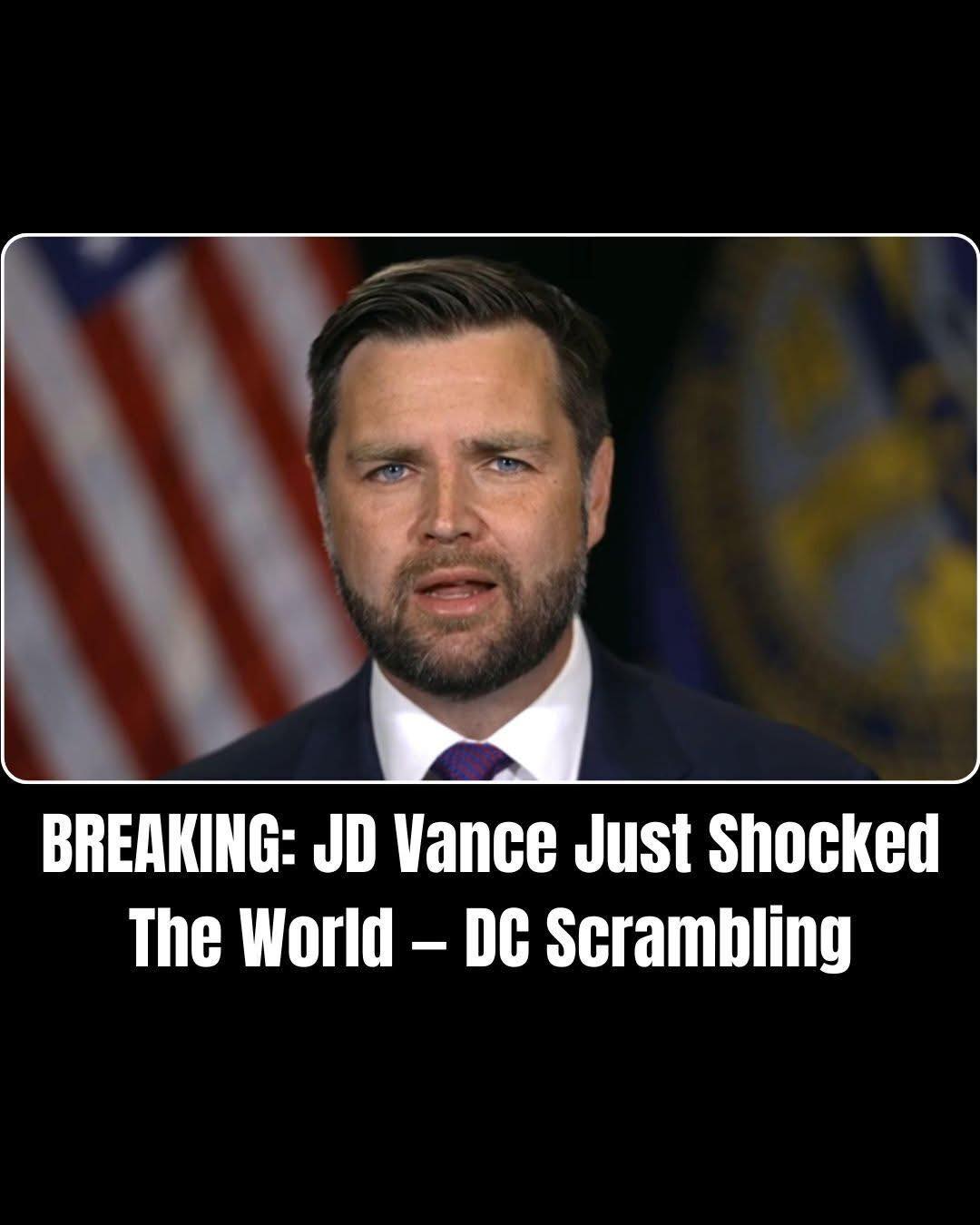Vice President JD Vance is putting Senate Minority Leader Chuck Schumer (D-N.Y.) on the defensive, resurfacing decades-old remarks from Schumer to argue that Democrats have abandoned their own past positions in the fight over the latest government shutdown.
The standoff centers on a continuing resolution meant to keep federal agencies funded. While the House passed a measure late Tuesday, it failed in the Senate after most Democrats opposed it, demanding $1.5 trillion in additional spending provisions. Some of those funds would have been directed toward healthcare coverage for undocumented immigrants, a flashpoint that Republicans argue undermines border security.
Vance’s Criticism
On social media, Vance retweeted a video clip from 1996 showing then-Rep. Schumer speaking on the House floor. In the footage, Schumer warned that offering taxpayer-funded benefits to undocumented immigrants would create incentives for further illegal immigration.
“Chuck Schumer once recognized that it was disastrous to give illegal aliens rewards for breaking the law,” Vance wrote. “Now he wants to shut down the government unless we…reward illegal aliens for breaking the law.”
The resurfaced clip, intended as a political contrast, was meant to highlight how positions on immigration have shifted within the Democratic Party over the past three decades.
Shutdown Fallout
The continuing resolution required 60 votes to clear the Senate but stalled at 55, with only three Democrats joining Republicans in support. At midnight, the government entered shutdown status, halting non-essential services and creating uncertainty for federal employees and Americans reliant on government programs.
In an interview Wednesday on CBS, Vance blamed Senate Democrats for the impasse.
“Why are we in this position?” Vance asked. “We’re in this position because Senate Democrats decided they were gonna shut down the government despite the fact that the House decided to keep the government open… It was one faction of one branch of government – the far-left faction of the Senate Democrats – who decided to shut down the people’s government.”
He added that families dependent on low-income food programs and other social safety nets would be hurt the most. “There are people who benefit from these programs, families like mine who benefitted from them, who are gonna see those programs disappear. There are critical services that the Democrats have taken hostage because they have a policy disagreement.”
The Immigration Debate
Immigration policy remains at the heart of the disagreement. Democrats have pushed for expanded access to healthcare for undocumented immigrants, arguing that public health is best served when all residents, regardless of status, have access to medical care. Republicans counter that such measures amount to “rewards” for entering the country illegally and create further strain on social services.
Schumer’s position has evolved since the 1990s, when many centrist Democrats supported stronger border enforcement and limited benefits for undocumented immigrants. Critics like Vance say that shift is evidence of the Democratic Party moving too far left under pressure from activist groups. Supporters, however, argue that the party’s stance reflects changing demographics, humanitarian concerns, and lessons learned from decades of immigration enforcement.
A Political Strategy
By highlighting Schumer’s 1996 remarks, Vance is drawing attention not only to the immediate shutdown but to what Republicans say is a broader pattern of Democratic inconsistency. The strategy mirrors tactics used in past political battles where archival footage is employed to contrast present-day positions with older ones.
It also signals the Republican Party’s intent to make immigration a centerpiece of its platform heading into the 2026 midterm elections. Vance, as vice president, has increasingly taken on the role of a combative messenger for the Trump administration, using high-profile moments like the shutdown to galvanize support.
Impact on Americans
While the political blame game continues, the practical consequences of the shutdown are already being felt. Federal employees across multiple agencies are facing furloughs or working without pay. Families dependent on nutrition assistance programs worry about disruptions, while small businesses that rely on federal permits and contracts face delays.
Essential services like Social Security payments, military operations, and emergency response will continue, but programs deemed non-essential will pause. Previous shutdowns have shown that even temporary interruptions can ripple through the economy, reducing consumer confidence and slowing growth.
Democrats’ Position
Schumer and Senate Democrats argue that their stance is about protecting vulnerable communities and ensuring long-term stability. They accuse Republicans of trying to pass a stopgap measure that fails to address pressing needs like healthcare, housing, and immigration reform.
Privately, some Democratic strategists worry that Vance’s messaging — particularly his use of Schumer’s own words from the past — could resonate with independent voters frustrated by gridlock. Others believe the shutdown fight can be framed as Republican unwillingness to compromise on broader spending priorities.
Looking Forward
With no immediate solution in sight, attention now turns to whether negotiations can produce a compromise. Both parties face political risks. For Republicans, a prolonged shutdown could draw public anger if families experience severe disruptions. For Democrats, being perceived as blocking a funding measure over immigration spending could reinforce Republican narratives of extremism.
Vance, however, appears eager to keep the spotlight on Schumer, suggesting that the minority leader’s credibility is at stake. “If Chuck Schumer in 1996 could see Chuck Schumer today, he wouldn’t recognize him,” one senior GOP aide said.
Conclusion
The government shutdown once again highlights the widening partisan divide over immigration and spending priorities. JD Vance’s decision to invoke Schumer’s past remarks underscores a growing Republican strategy: portraying Democrats as abandoning their earlier positions for political gain.
Whether voters see this as hypocrisy, evolution, or simply politics in a changing America will play a key role in shaping public opinion — and determining how long the government remains in limbo.
